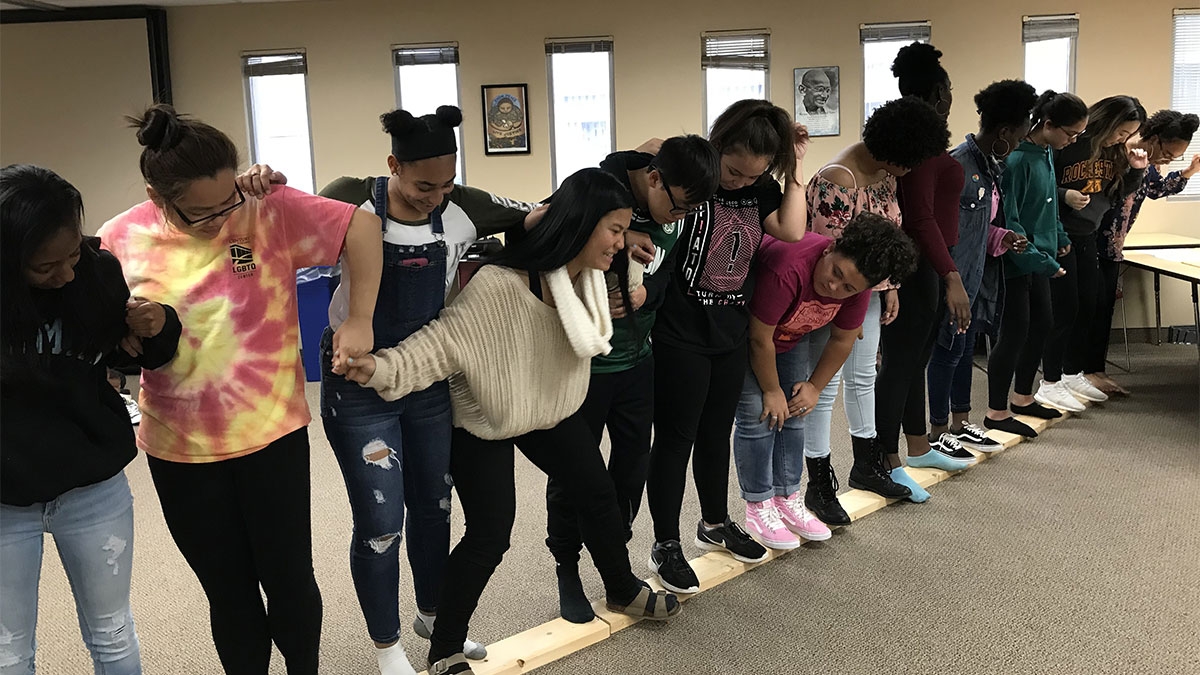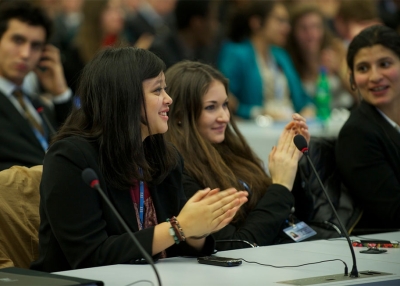Promoting Civic Engagement Through Afterschool Programs
New issue brief showcases exemplary programs

By Nikki Yamashiro, Director of Research, Afterschool Alliance
November 1, 2018
Earlier this week on my way into work, a father and his elementary-aged daughter were at the bottom of the metro escalator greeting metro riders with a huge sign that read "VOTE!"
That sight brought a huge smile to my face; it was inspiring to see someone so young encouraging others to be civically engaged. The sign didn't advocate for any particular candidate, but to take part in the democratic process, and at a time when civic engagement levels are low—not only voting turnout, but volunteerism rates as well—it was heartening to see that act of involvement. Civic engagement, particularly at a younger age, is vital, and that is why the Afterschool Alliance and the Center for Global Education at Asia Society partnered to develop a new issue brief, Promoting Civic Engagement Through Afterschool Programs.
The issue brief shines a light on the interactive and immersive ways afterschool and summer learning programs are encouraging youth to be knowledgeable, engaged, and civically minded individuals. In afterschool and summer learning programs, civic engagement takes many forms.
At YWCA New Britain's House of Teens program, girls capture barriers to health in their neighborhood through a digital photo project, developing solutions and presenting their proposals to audiences that have included policymakers and community members.
Youth in Equity Alliance MN's Youth Executive Board (YEB) reflect on and discuss topics, such as implicit bias and the history of the civil rights movement, and student initiatives have included speaking to their school dean about proposed changes to the school's discipline policies.
Other programs spotlighted in the brief are Alternatives, Inc., in Hampton, Va.; After-School All-Stars Hawaii; and Washington state's YMCA of Port Angeles' Youth and Government program.

Through interviews with a handful of programs across the country who are lifting up youth voice and fostering civic engagement, we were able to hear the passion, dedication, and pride of program staff who see the young people in their programs increase their sense of personal and civic responsibility, gain confidence in their abilities, and view themselves as change agents.
Research has found that youth who are civically engaged are more likely to remain civically engaged as adults. With 3 in 4 superintendents agreeing that preparing students for engaged citizenship is a challenge for their district, afterschool and summer learning programs are a necessary partner in efforts promoting youth civic engagement.
Read the full issue brief to find out more about civics education best practices, discover innovative approaches to civic engagement being taken in the afterschool field, and find inspiration to exercise your right to vote on Tuesday, November 6!
The original version of this article is published on Afterschool Alliance's website. Reposted here with permission.

